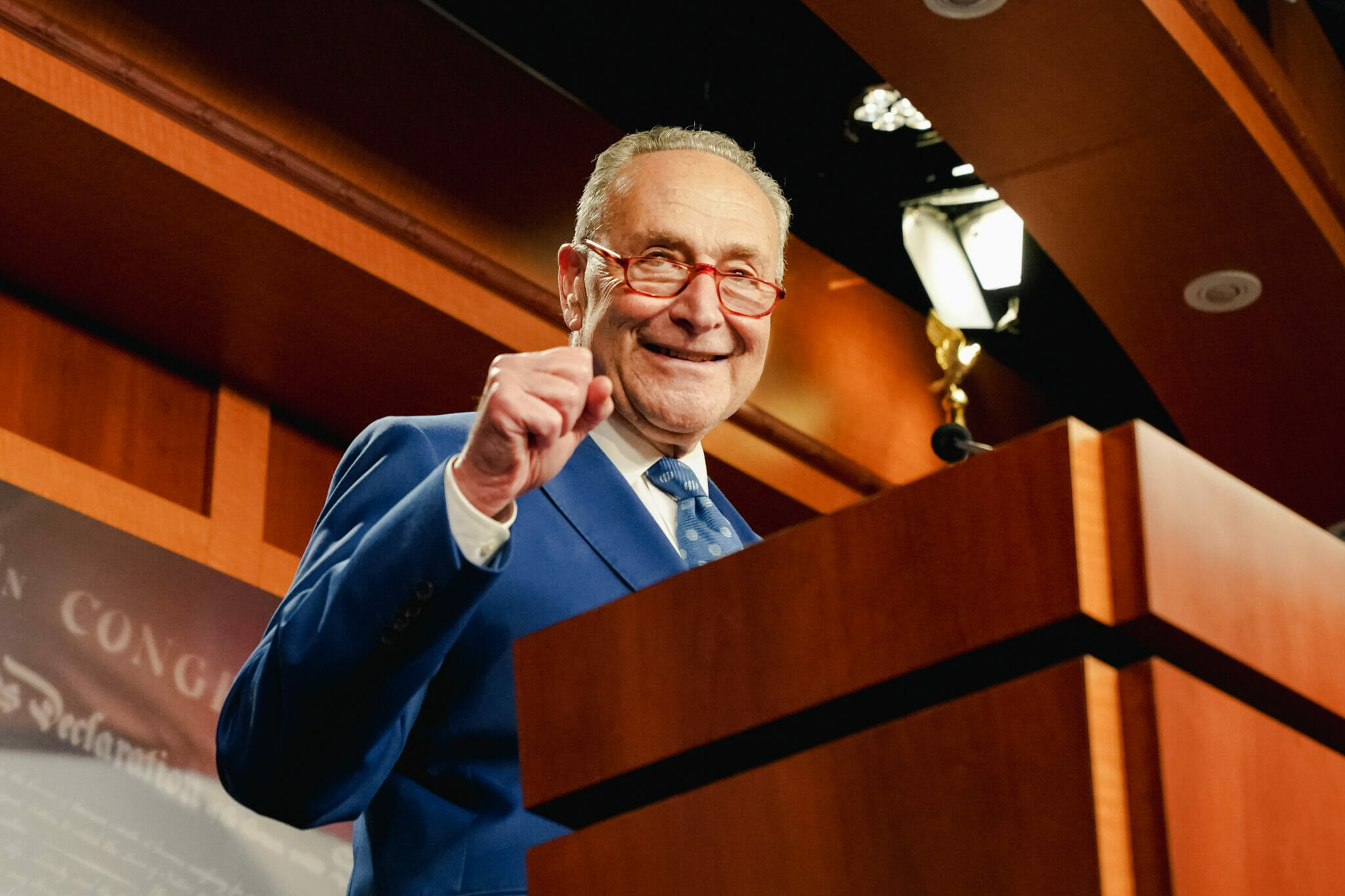Sign up to receive our weekly newsletter
In many regards, the Inflation Reduction Act of 2022 is a story of contradictions. Narrowly passed over unanimous Republican opposition in the Senate last week, the bill is expected to pass the House of Representatives soon. The IRA bill devotes $369 billion to accelerate the transition to green energy, making it by far the biggest climate change legislation in US history. But the price of West Virginia senator Joe Manchin’s support was the inclusion of measures intended to boost fossil fuel production. The bill moves to rectify some long-standing environmental injustices, but the additional fossil fuel permits and auctions that Manchin secured could further burden disadvantaged frontline communities. For anyone concerned about the climate emergency, the bill is a glimmer of hope, opening the door to a future that just weeks ago seemed slammed shut, but it is also not nearly enough on its own to turn back the tide of climate change.
There is debate about what the legislation actually achieves and where it falls short, with its environmental justice implications a particular subject of disagreement. But as Covering Climate Now executive director Mark Herstgaard explains in a new piece for The Nation, the bill is unquestionably a big deal — and, in a surprise, it might not unleash the surge in fossil fuel production that both Manchin and critics expect. For journalists, it’s critical to interrogate these various disagreements, rather than accept the topline talking points of politicos. But let’s also keep sight of the big picture: The climate emergency is upon us, and further strong action is imperative if humanity hopes to preserve a liveable planet. (A comprehensive analysis this week by the Guardian detailed climate’s explicit role in extreme weather worldwide, including excessive heat that has contributed to millions of deaths over the past three decades.)
In lieu of our normal newsletter, this week we’re highlighting some of the strongest journalism illuminating what the bill does and doesn’t do and the questions that journalists and the public should be asking going forward.
From the Los Angeles Times: The editorial board of one of America’s biggest newspapers calls on President Joe Biden to follow through on an earlier pledge to declare a national climate emergency. Given mounting climate disasters in California and beyond, and the fact that the bill falls well short of what’s needed to limit temperature rise to 1.5 degrees C, the board writes that, “The threat now is so dire that we need Biden to deliver on his pledge. That means using every executive and administrative power legally available to him to protect Americans from climate-fueled disasters, boost renewable energy and shift away from fossil fuels.”
From Agence France-Presse: Validating claims that the IRA bill will boost US climate credibility on the world stage, scientists are calling on leaders elsewhere to follow suit. One London-based scientist praised the bill in particular for foregrounding inflation: “I think that shows the world how to get climate policy passed, by hitching it to things that really matter to ordinary people, to make sure it’s part of an overarching package to make life better for people.”
From PBS NewsHour: In an insightful interview, the Hip Hop Caucus’s Reverend Lennox Yearwood, Jr., a leading environmental activist, calls the IRA “historic and a critical bill for humanity” but warns that its concessions to fossil fuels “continue the cycle of ‘sacrifice zones’ in America.” Yearwood, who is from coastal Louisiana, explains that poor communities and communities of color have long suffered from their proximity to fossil fuel infrastructure. Those communities were hoping climate change legislation might mean relief, but aspects of this bill instead “lock in” injustice, Yearwood says.
From the Associated Press: Though the bill does appear to leave substantial environmental burdens on frontline communities, it also invests some $45 billion in climate justice initiatives. The AP digs into what those are — pollution mitigation in ports, for example — and the communities that will likely benefit the most.
From Grist: The bill’s requirement that the government auction additional oil and gas leases on federal land and in the Gulf of Mexico might not stimulate more production of fossil fuels at the level critics of the bill fear. Due to market trends, the oil and gas industry has already taken a big step back from such projects; an auction of 80 million offshore acres last year, for example, yielded bids for only 1.7 million acres, many of which may never actually produce oil.
From The New York Times: At Manchin’s behest, passage of the climate bill hinged partly on a deal to separately consider legislation that would expedite approvals for fossil fuel infrastructure, including a pipeline running through Manchin’s home state, West Virginia, that has angered local environmentalists. Smart accountability reporting from the Times shows how the deal directly benefits top campaign donors to Manchin, who has received three times as much money from pipeline companies over the past two years than any other member of Congress.
From Civil Eats: Agriculture and livestock are significant sources of greenhouse gas emissions even as climate change puts American farming at enormous risk. The IRA bill proposes about $40 billion to support climate-friendly farming practices and to boost farm’s climate resilience — and also moves to address a history of discriminatory practices by the US Department of Agriculture that greatly stymied Black farmers.
From The Washington Post: A new study reveals that warming in the Arctic is progressing much faster than scientists anticipated, with temperature rise in some areas reaching four times the global average. With the US, the world’s largest historical emitter, finally poised to enact climate legislation, the Arctic’s rapidly melting ice is a reminder of what’s at stake.
We’ll be back to regular programming in our newsletter next week. Thanks for reading and have a great weekend!
